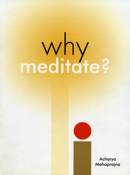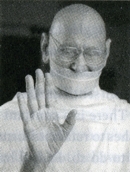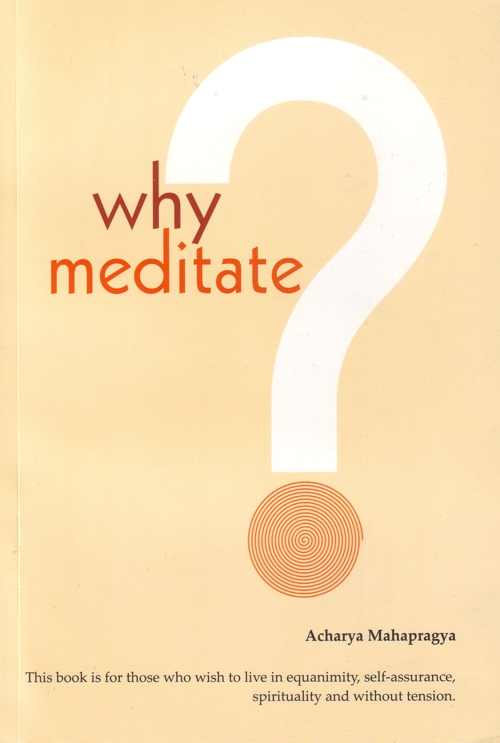

Till today, no one has said, “I did Samayik (a spiritual practice for 48 minutes) and felt guilty, so punish me.” No one has atoned for this act until today. Whenever a poisonous environment is created, repentance follows. Anger, ego, deceit, fear, hatred, and such embedded traits - all are of the same nature. These result in feelings of repentance. Forgiveness and courtesy are of different nature. A person who is polite never regrets having been excessively polite, nor does he ask forgiveness for it. The need simply does not arise. Let us understand the nature of these two concepts clearly. One has the nature of being influenced by Pudgal and the other has the nature of being influenced by consciousness. The difference between these two is obvious. However, it is difficult for a person who is deeply coloured by the material world to understand the world of consciousness. Some times, there is a turning point when he suddenly understands reality. Some awaken through spiritual practices, while some awaken by listening to others. If there is a deep impact upon a particular part of the brain, a sudden process of inner transformation occurs. Sometimes such a deep injury awakens the person.
A man went to a saint and listened to his sermon about peace. He was very influenced by the sermon, and started thinking deeply. He came home and sat in introspection. He tried to communicate with all his negative emotions and began to have a dialogue with them: “Dear Anger! Now I think you should go and find some other place to reside. We have had a long-lasting relationship. Now please search for some house of your own.” Anger stood up speechless. “Dear Ego! You have been my friend for a long time. I don't even know how long you have been with me. Please leave my house. Dear Delusion! Even you have stayed with me always. So now I want you to go somewhere else and leave me alone. My friend, greed! You were my dearest friend! I have given you good company. Now I cannot live with you. Find your own place elsewhere.” All the negative emotions replied, “Are you crazy? What are you talking? How can we leave you? Don't you know the law of the world? A person who pays rent for more than 10 to 20 years becomes the owner of that house. But in our case we don't know how long we have been together. Today, you are indulging in talk of discarding us! It seems your mind is upset. Are you sure you have not gone crazy? When one is crazy, one speaks strangely. You are also behaving in the same way. How can we leave you?” The person responded, “I have been enlightened by spirituality. Now there is no room for all of you here.”
As soon as the doors of inner consciousness open, one experiences a new world that changes the flow of one's life. Mohanlalji Kathotiya worked hard to develop Adhyatma Sadhana Kendra at Mehrauli (New Delhi). We have also seen the earlier phase of his life, when he was steeped in worldly luxury and enjoyment and was materialistic. He was an eminent man with fine tastes and he enjoyed worldly things. When he entered the spiritual world by practicing Preksha Meditation, he began to live a life of total detachment. His old lifestyle ended. In other words, we can say that after practicing Preksha Meditation, his materialistic life died its own death.
Life has two dimensions. When transformation takes place the influence of the material world decreases and our consciousness become victorious. Then, our way of living changes. Every person should ask whether he wishes to win or lose. This is an internal struggle. You should know in what condition you are living. It is possible that up to the age of 30-40 years, a person may not think about the development of his inner consciousness. Some people might think of this development earlier, but after crossing the age of 40, it is necessary to re-channelise our thought processes. That is a milestone in our lives. After this age, the journey of our life starts declining. The potential of our senses weakens gradually. This is explained elaborately in the Acharang Sutra. A great deal of information can also be found in Ayurveda. Ten stages of life have been delineated, each stage lasting for 10 years. Up to 40 years there is growth and development, after which decay begins.
Why do I wear spectacles? My eyesight was good. At the age of 40, a team of eye-specialists came from Bikaner Hospital, Rajasthan. They advised me to use spectacles, as I have to study and read a lot, and cautioned me that otherwise my eyesight would weaken. I began to use spectacles to protect my eyesight. At the age of 40, a person should be aware of what changes he needs to bring about. There should be a change in the use of senses, in the state of mind and the food consumed. A twenty-year-old youth can digest rich and heavy food easily, but if a sixty year old consumes the same food, then he will need to consult a doctor. At this stage, if we focus on our inner development, it is expected that our attachment will reduce.
In psychology, there is a classification of basic instincts. If we look from the spiritual point of view, there is only one basic instinct and that is raga (attachment). All the other instincts belong to its family. When there is attachment towards someone, there is the possibility of aversion towards another. Aversion is the product of attachment. Due to attraction, the bond of attachment increases and we get entangled. We get bound either to a house or to money, a person or material things. If we are tied up with any of these, then our mind believes that we cannot live without them. This is the bondage of attachment.
Where there is growth of consciousness of detachment, there will be no bondage. Our consciousness would be free, liberated and independent. Here are two different states: a state of bondage and a state of freedom. Where there is attraction and attachment, there is bondage and where there is detachment, there is freedom.
The question arises how to develop the consciousness of detachment. For this, it is necessary to practice Kayotsarg (relaxation with self awareness) and Bheda Vijyan (discrimination between soul and body).The ultimate objective of Kayotsarg is Bheda Vigyan: giving up of attachment towards the body and senses, and renouncing the sense of “mine”. Shavasan and Kayotsarg are not similar. Kayotsarg is not only relaxing the body. While it also entails keeping the body stable and still, in the initial stage of Kayotsarg, the ultimate result of Kayotsarg is renunciation of attachment. To give up attachment towards, and identification with, one's body and senses, is the real essence of Kayotsarg, where the separation of body and soul is experienced. You come to know that the soul is different from the body.
We must pay special attention to Kayotsarg. It is a very important technique of Preksha Meditation. It is the first step as well as the last stage of Preksha Meditation. Our spiritual journey begins with Kayotsarg and ends with Kayotsarg. Gunasthana means 14 stages of spiritual progress of a soul. When a soul moves from the thirteenth Gunasthana to the fourteenth Gunasthana (last stage), the state of real Kayotsarg is attained. Kayotsarg is the best solution to awaken the consciousness of detachment. We must keep on practicing Kayotsarg so that the development of consciousness of detachment will be attained.
 Acharya Mahaprajna
Acharya Mahaprajna
 Copyright by Acharya Mahaprajna ©2005
Copyright by Acharya Mahaprajna ©2005